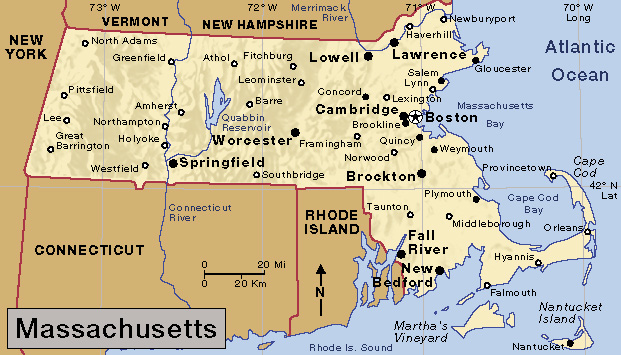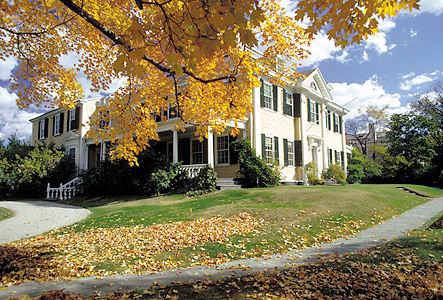Cambridge, << KAYM brihj, >> Massachusetts (pop. 118,403), stands on the Charles River, opposite Boston. The city is famous for its educational, historical, literary, and scientific contributions. The presence of Harvard University, Massachusetts Institute of Technology, and Lesley University has given Cambridge the name University City. Harvard has world-famous museums and the world’s largest university library system. Massachusetts Institute of Technology has exhibits on maritime history and the history of technology.

Cambridge’s factories once made such products as furniture, glass, office equipment, books, cameras, candy, and radios. Since the mid-1900’s, Cambridge has become a center of research in such fields as electronics, computers, software, space, and biotechnology.
Puritans founded Newtowne in 1630 as the first capital of the Colony of Massachusetts Bay. Harvard College was established in 1636. In 1638, the town’s present name was adopted in honor of Cambridge, England.
Cambridge became an armed camp at the outbreak of the American Revolution. Minutemen gathered on Cambridge Common after the April 1775 battles of Lexington and Concord. On July 3, George Washington took command of the soldiers and formed them into the Continental Army. From 1779 to 1780, a convention drew up Massachusetts’s state Constitution in Cambridge. 
Cambridge contributed to the great literary movement of the mid-1800’s. Authors who lived and wrote in the city included Richard Henry Dana, Jr.; Thomas Wentworth Higginson; Margaret Fuller; William Dean Howells; Henry Wadsworth Longfellow; and James Russell Lowell.
Cambridge became a city in 1846. It has a council-manager form of government. Cambridge and Lowell are the seats of Middlesex County.
